Both from the viewpoint of developmental psychologists and marketers, the way teenagers make their decisions and how they are influenced can be critical in building up a long term relationships. Professor Sarah-Jayne Blakemore of UCL London disputes the still widely accepted idea that brain development takes place primarily in the first 3 to 4 years of life. | If you want to find out more about the adolescent brain, listen to Professor Sarah-Jayne Blakemore in this new BBC radio interview or watch her earlier TED talk at: www.ted.com/talks/sarah_jayne_blakemore_the_mysterious_workings_of_the_adolescent_brain?language=en#t-7666 |
|
0 Comments
 First impressions can make or break a business deal and shaking hands is often part of that initial meeting. But how important is that contact? In late 2014, researchers at the University of Iowa found that job applicants with a good handshake were scored higher on ‘employability’. The students were considered to be more employable for their “more extroverted personalities and greater social skills”. And students with limp handshakes were judged to have less gregarious personalities and were in general, less impressive. In the book he has co-authored with author Susan Kuchinskas, neuroscientist Paul Zak, Director of the Center for Neuroeconomics Studies at Claremont Graduate University in California and Professor of Economics and Neurology, writes with author Susan Kuchinskas : “Touch primes the brain to release the hormone oxytocin. In Zak’s experiment, half the participants received a 15-minute massage and then played an economic game in which they exchanged real money. After being trusted by a stranger with money in the hope that they’d reciprocate, the brains of participants who got a massage released much more oxytocin than those who simply rested alone. And… those who received massages returned 243% more money to the stranger who showed them trust than those who rested.” The release of oxytocin effectively helps establish a sort of social glue and economic lubricant. In his more recent research, Zak has shown that the human brain uses oxytocin to unconsciously assess if a person is trustworthy by accessing our memory of past encounters accessing all of our senses, including touch. If the stranger is a good match for other trustworthy people, the brain releases oxytocin, telling us it is safe to trust them. Simultaneously, oxytocin causes the release of another brain chemical, dopamine, and this little charge helps us associate a trustworthy person with pleasure. The next time we meet this person, the trust assessment happens more quickly. Zak’s research seems to suggest that if a firm handshake is good, a massage might be even better. But… unfortunately, a typical job interview or sales call doesn’t usually permit that kind of activity so, where does this leave us? Touch is an important tool in building trust. And this is certainly influenced by a good handshake – a firm grip, eye contact and a vigorous up-and-down movement. In most business contact situations we get to exchange two handshakes – one at the beginning of the meeting, and one at the end so we should, in his words, “make the most of both handshake opportunities”. 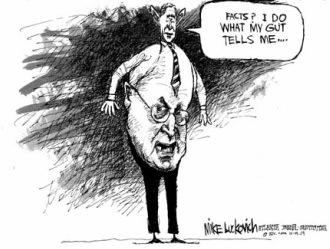 A new PwC report, ‘Guts & Gigabytes’ has found that business leaders take major businesses decisions based less on data and analytics and more on gut instinct and experience. They believe that both their own intuition and experience (41%) and the experience of others (31%) is of more importance than data and analytics which came third with 23%. Written by the Economist Intelligence Unit, the report explores how companies are using data and in particular, how the nature of decision-making is changing. Although gut instinct dominates, in the UK, 83% of senior executives believe that their big decision-making has improved in the last two years, because of the availability of better internal and external data; Yet 41% still remain concerned about the quality, accuracy and completeness of data. Business leaders also share a recognition that future leaders need to be familiar with data analysis, with 81% of UK executives calling it a prerequisite for senior management. Tom Lewis, PwC head of data analytics, comments: “In the digital age, as business becomes ever more complex and data becomes ever more available, business leaders need to ensure they know how to quickly make decisions based on their analysis of data.” The major findings are similar around the world, but interestingly; because big decisions are being driven so much by costs and margin pressure, 52% of UK business leaders expect to collaborate with their competitors in the next year, a figure which is significantly higher than the global average of 36%.Download 'Guts and Gigabytes' here 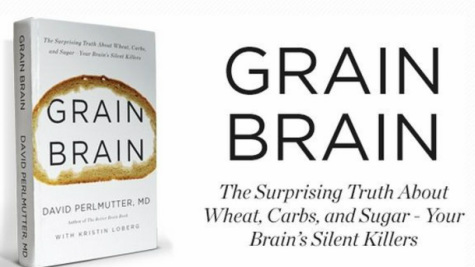 Cut back on the carbs and eat/drink dairy products… as long as they’re full-fat! The latest buzz on the food and diet front is all about eating fat and not eating grains (or modified grass as Dr William Davis puts it in his best-seller, Wheat Belly. Now, diet books move on to the brain! Dr. David Perlmutter has come along with a book called “Grain Brain” which also says that carbohydrates should definitely be cut from your diet, but that fat is fine… especially for the brain. “We’re not talking about hydrogenated trans-fats, but foods like extra virgin olive oil, avocado, grass fed meat and wild fish,” he says. Put differently, this translates as: drop all the processed stuff, select all-natural options (particularly vegetables) while leaving sugar, bread and any grain based products on the side. “Basically this is a diet that really focuses on eating a lot of above ground vegetables, kale, spinach, broccoli, cauliflower and relegates the meat to being the side dish,” says Dr. Perlmutter. As a dietician and a well-respected neurologist, he is convinced that this way of eating is better for your brain. “People are really worried about brain issues. They’re worried about things like Alzheimer’s, depression, ADHD, etc., and the message of the book is that these issues are preventable.”  In the new science fiction thriller "Divergent" (very much in the same genre as The Hunger Games), teenagers in their strictly ordered society are given a kind of futuristic aptitude test to determine their place in the world. It is set in the fenced-off remnants of a post-war Chicago 100 years from now where society has been broken down into five factions—groups of people arranged by their primary, defining trait. These five factions, each corresponding to a personality trait or virtue are: Abnegation (selfless), Amity (peaceful), Candor (honest), Dauntless (brave) and Erudite (intelligent). But then the concept of divergence from these norms arises and… It brings to mind the Swiss psychiatrist Carl Jung who, back in the early 20th century, used word association games to determine if his patients relied primarily on their feeling, intuition, sensation or thinking modes. This of course went on to inspire the Myers Briggs personality assessments, DISC, Benziger and many others. HR managers beware! 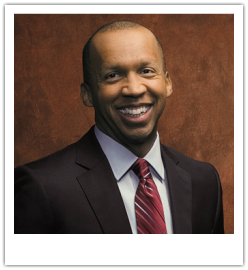 Bryan A. Stevenson Bryan A. Stevenson The latest issue of Forbes magazine contains an article by Carmine Gallo, the communication coach. His subject is the TED talk given by human rights lawyer Bryan Stevenson, who received the longest ever standing ovation in the history of the globally famous TED conference after his March 2012 speech entitled, “We need to talk about an injustice”. He goes on to say that Stevenson has what Aristotle called “pathos.” Aristotle believed that persuasion occurs when three components are represented: ethos, logos, and pathos.
The results... Ethos made up 10% of Stevenson’s content and Logos only 25%. But Pathos made up a full 65% of Stevenson’s talk.
Why don’t you consider giving stories a starring role in your next presentation, especially if your aim is to persuade others to act based on what you are presenting. Drop some of the hard facts, choosing only the most convincing ones that will also be readily understood by your audience.http://www.forbes.com/sites/carminegallo/2014/03/07/public-speaking-payoff-the-presentation-worth-55000-a-minute/ http://www.ted.com/talks/bryan_stevenson_we_need_to_talk_about_an_injustice 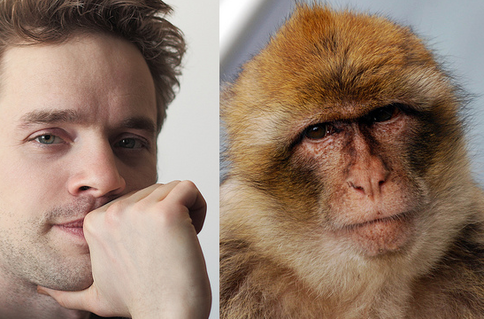 Flickr via Creative Commons; L: Yuri Samoilov R: BBM Explorer Flickr via Creative Commons; L: Yuri Samoilov R: BBM Explorer This extract taken from the journal Neuron: Scientists at Oxford University recently discovered an area of the brain that contributes to make humans, well, human. The walnut-sized area, nestled within the frontal cortex, is called the lateral frontal pole. It’s responsible for planning and decision-making and, according to the new findings, has no equivalent in the monkey brain. Researchers thus believe this brain region might be responsible for humans’ upper hand in tasks that require strategic planning, decision-making and multitasking. The researchers compared MRI images of humans’ and macaques’ ventro-lateral frontal cortex, a region of the brain that controls language and complex thought processes. Surprisingly, they found that the region was wired up in much the same way between the species. But the striking difference was the lateral frontal pole. Oxford senior researcher Matthew Rushworth explained the significance: “We tend to think that being able to plan into the future, be flexible in our approach and learn from others are things that are particularly impressive about humans. We’ve identified an area of the brain that appears to be uniquely human, and is likely to have something to do with these cognitive powers.” Karl Zilles, a neuroscientist at the Institute for Neuroscience and Medicine in Germany, told The Guardian that the study also takes us a significant step forward in the study of psychiatric disease: “I am quite sure that this will turn out to be of great importance in studying psychiatric disease. What we understand now is the connectivity within the brain. We know the cables and the connections. What we have to do now is combine all this with how information is processed in the different brain areas.” … no surprises to readers of this blog but it turns out that we tend towards laziness when we make decisions – the name ‘miserly cognitive processing’ is the psychological term, and this laziness or miserly convenience often leads to poorly thought through decisions based on incorrect data or interpretations of that data.Psychologist Dr. Kahneman, who won a Nobel Prize in economics for research into decision-making in 2002, says it is very difficult to overcome our split-second irrational reactions. "Much of it is automatic," he says. "Preferences come to mind and emotions arise, and we're not aware that we're making decisions and assumptions and therefore cannot control them."
Now, the Center for Applied Rationality (CFAR, a Californian based non-profit corporation) is there to help you with upcoming international workshops: Friday, February 21 – Monday, February 24 (Melbourne) Friday, March 21 – Monday, March 24 (SF Bay Area) Friday, April 11 – Monday, April 14 (NYC area) They claim to: "... turn mathematical and empirical insights into everyday skills like; how to make accurate predictions, how to avoid self-deception, and how to get your motivation where your arithmetic says it should be." But don't worry: this won't change human nature which, as we know, depends on emotion for many very human traits. The odd secret of rationality is its reliance on emotions, says CFAR President Julia Galef, . "People are always really surprised at how much time we spend at the workshops talking about our feelings," says CFAR President Julia Galef, who has a degree in statistics. "Rationality isn't about getting rid of emotions, but analyzing them and taking them into consideration when making decisions," she says. 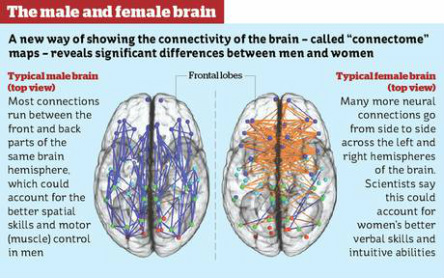 You may well have read the news stories… Researchers at the University of Pennsylvania used diffusion tensor imaging (DTI) to plot the brain wiring maps of 949 people aged 8 to 22 and demonstrated that “fundamentally different connectivity patterns in males and females” exist. But do they? They stated that women’s brains had more connectivity across the two hemispheres while men’s brains had greater connectivity within each brain hemisphere. These findings, they said, helped to explain behavioural differences between the sexes, such as women being more intuitive thinkers and born ‘multi-taskers’ compared to men being good at sports and map-reading. “The connections that mean girls are made for multi-tasking,” said the Daily Mail. “… hard-wired difference between male and female brains could explain why men are ‘better at map reading’” said The Independent. But this new research paper did not actually look at behavioural differences between the sexes – things like intuitive thinking and multi-tasking. The researchers made assumptions about how wiring differences could relate to behavioural differences between the sexes. And the thing is, although these differences are indeed statistically significant, there is a lot of overlap, meaning that your male brain could well be wired more like an average female brain; the reverse being obviously true as well. All this study really shows is that these ‘natural differences’ in the wiring of brains do exist and that they can be grouped together into various categories. A certain degree of hardwiring (nature) is in place before nurture exerts her influence. Earlier research has shown some real differences; namely that male brains are slightly larger, that women have a higher ratio of grey to white matter and that the amygdala which is responsible for emotional processing are (there are two of them) larger in men… would you believe? It is time to acknowledge the differences from one brain to another, but as a man reading this, there’s a high chance that your brain is cross-wired in what the researchers consider to be a female orientation. And vice-versa of course; and maybe that’s a very good thing. 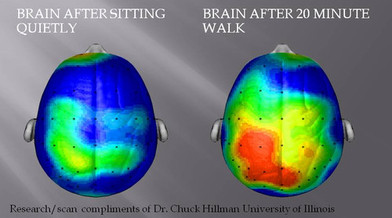 Never forget that physical exercise has been shown to be the best brain stimulus. Try walking meetings to get a more creative output! Don’t feel guilty walking away from your desk. In fact, quite the opposite: Studies have shown that taking short breaks can help you do your job better. It's in your (and your employer's) best interest to take a break and going one step further, going outside the building, has also been shown to reduce stress levels and make you happier. Sitting in the same place all day, like behind your computer, can leave you uninspired, while walking outside provides additional stimulation and enhances creativity. |
AuthorJames Capon is a founding partner of Lazy Horses. He feels he is rational when he needs to be. But he's probably wrong about that. Archives
March 2019
Categories
All
|

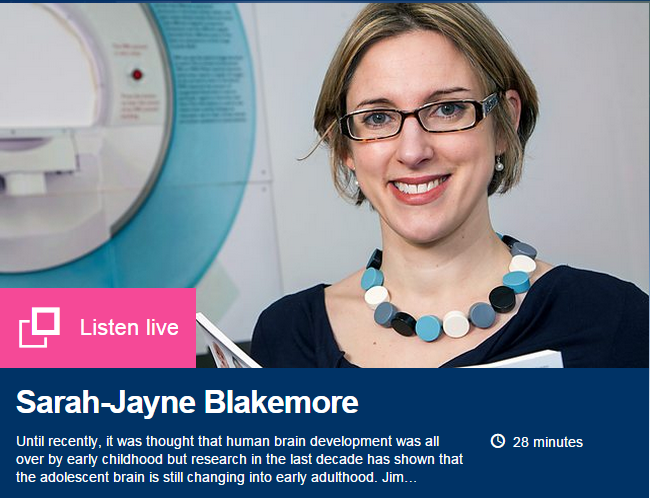
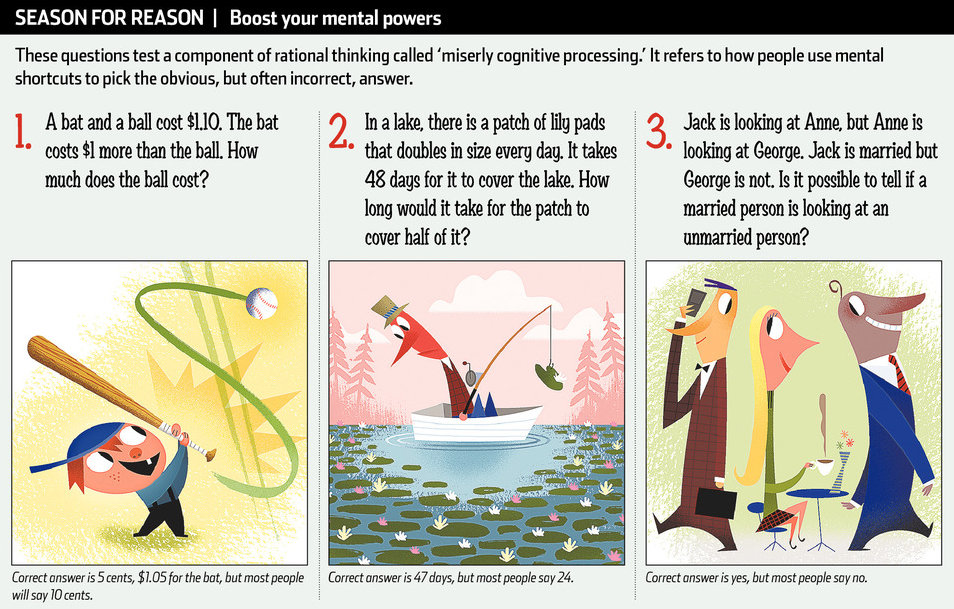
 RSS Feed
RSS Feed